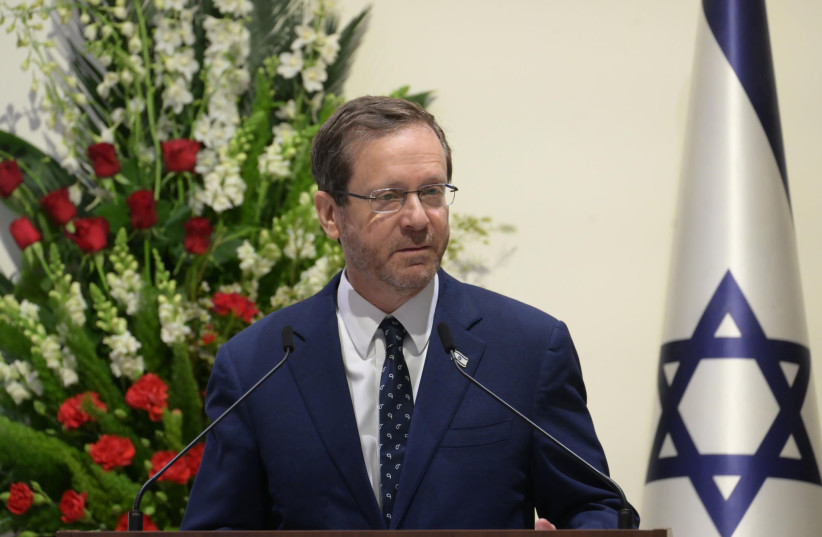Most Israelis agree that the country needs a judicial root canal. The problem is that we cannot agree on which teeth, which dentist, and who should pay.
There are two sides to this conflict, which seems to be a remake of the Hanukkah story of 164 BCE. It’s the Judean Maccabees fighting for the Jewish soul of Israel against the mostly secular Israelis fighting for democracy – the system of government popularized by the Greeks (c.6th-century BCE) before the Seleucid offshoot of Alexander the Great’s Macedonian Greek empire violated our Second Temple in the 2nd-century BCE.
For Jews living in the Land of Israel, theocracy is our traditional form of government and not democracy. We always governed ourselves with a monarchy – King David, King Saul, and King Solomon; as well as Herod the Great, to name a few.
While everyone is focusing on the relationship between the judiciary, specifically the Supreme Court, and the Knesset, they are missing one of the greatest dangers to Israeli Democracy – our presidency. The Israeli presidency is in desperate need of reform.
Instead of being a check and balance on the Knesset, Israel’s president is really an extension of it, because its 120 members of the Knesset are the voting constituency. Besides Israel’s first president Chaim Weizman, only one other president was not an MK. The last seven presidents were elected from among sitting MKs – or recently retired ones, like Isaac Herzog. Imagine what our democracy will look like when the Knesset elects both the president and Supreme Court justices.
While largely a ceremonial role, the president has two powers granted by law that play an important role in our democratic process and can be used to unfairly influence this fight between the Jewish and Israeli character of the State.
The most important power that the president has is to bestow the mandate to form a government on one of the 120 Members of the Knesset after an election. By law, the president must consult with all the political parties before giving the mandate to whoever he or she elects. It must be one of the 120 MKs and has always gone to the MK from the largest party or from the largest political bloc, but it is a judgment call after the consultation.
Will a secular Israeli President refuse to give the mandate to an ultra-Orthodox, non-Zionist MK who has the greatest chance of forming a government? That MK may look to change Israel to a less liberal country governed by more religious, not secular laws. A secular president can prevent that by refusing to grant a mandate to that MK and giving it to someone else.

Herzog has been voice of reason
What about an ultra-Orthodox or National Religious president refusing to give the mandate to a non-Jewish Israeli whether Muslim or of Russian descent? This would effectively disqualify any of the two million Israelis of Palestinian descent, or any of the estimated 300,000 Israelis of Russian descent who are not Jewish, from becoming prime minister.
Why would a devoutly religious Jewish resident hand over the keys to the Jewish State to someone who is not Jewish? Unless the granting of the mandate is anchored in law, the Israeli president is free to choose whomever he or she wants.
The other power the president of Israel has is actually more than power, it is a secret super-power that currently undermines our democracy and judicial system. The president can pardon or commute the sentence of a convicted felon like in many other countries. The unbelievable, and unique power given to Israel’s president is that he or she has no obligation to publicize the names or crimes of those pardoned. As a result, every president of Israel secretly pardons hundreds of criminals a year and the Israeli public has no idea who they are.
Our justice system is undermined by this presidential superpower because court convictions are secretly overturned. There are no statistics on pardons based on the religious or ethnic background of the criminal, time served, or recidivism. A secular president may favor his own kind for pardons and discriminate against ultra-Orthodox or National Religious felons. Similarly, a Jewish religious president may favor his coreligionists while avoiding pardoning secular Israelis. Are Israeli Arab felons treated equally when it comes to pardons? No one really knows.
President Herzog has reported that he pardoned 411 people since taking office in July 2021 until the end of 2022. He pardoned felons in 2023 but his office has refused repeated requests to release the exact number. Just to compare, in the United States, a country 36 times more populous than Israel, presidents Clinton, Bush, Obama, and Trump pardoned 459, 200, 1,927, and 237 respectively. Are Israeli Presidents more compassionate than their American counterparts or is it just that they can pardon in the dark?
President Isaac Herzog has been one of the voices of reason in the past few months, trying to promote dialogue and achieve the widest possible consensus for any legislative changes. While I have the highest regard for him, he needs to lead Israel’s judicial reform as a reformer and not a reform referee. Judicial reform starts in Beit Hanassi – the home of the Israeli president.
The writer is an American-Israeli pollster, lobbyist, and strategic communicator working in Washington and Jerusalem. He served as an international media adviser and speechwriter to president Shimon Peres and prime minister Ariel Sharon and as an aide to then-deputy minister Benjamin Netanyahu during the tenure of prime minister Yitzhak Shamir. @uberpollster
